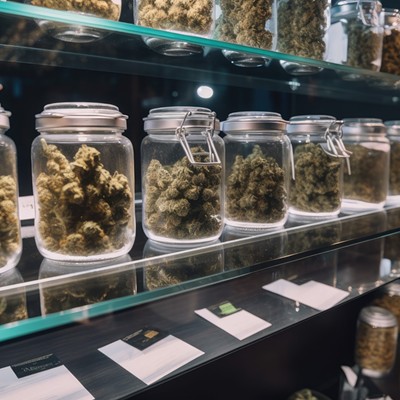As new as the marijuana industry is, predicting the effects it may have on our economy and society has been tricky. However, one of those effects has been gaining some credibility: legal marijuana leads to lower alcohol consumption.
You'll find theorists making claims on either side of the argument: Either marijuana is a clear substitution for alcohol, or—due to differences in methods of consumption, laws and how each substance makes you feel—marijuana and beer don't quite equate to the same experience.
But states with medical marijuana laws experience an average 15 percent decline in alcohol sales, according to a study conducted by researchers at the University of Connecticut and Georgia State University, the Washington Post reports.
The study corroborates previous reports and gives us at least a close estimate with which to explore how implementing medical marijuana laws affects alcohol consumption.
The report notes that medical marijuana laws severely limit access to legal marijuana for the clear majority of the population, indicating that recreational marijuana may have an even broader effect.
As any good economist will tell you, when studying market changes, it's important to consider unseen costs. In this case, it means considering lost alcohol revenue when looking at the economic impact of lost alcohol sales.
The clincher, however, is that the study notes marijuana is less detrimental to individuals and society, which means legalizing marijuana can have "significant public health benefits," as the Post reports.
With the preponderance of anti-marijuana propaganda floating through the airwaves and out the mouths of politicians, it's ironic that the fearful substance they so vehemently oppose may actually improve the lives of their constituents and communities.
Alcohol has been shown to be more addictive, more likely to cause accidents and more closely linked to violent tendencies in individuals. Its beginning to look like marijuana legalization may not compound some of these issue, but rather alleviate their impact.
In fact, the federal government itself found that marijuana users are at a far lower risk of causing accidents than drunk drivers according to data from the National Highway Traffic Safety Administration in 2015. Their numbers suggest drivers under the influence of alcohol are seven times more likely to cause an accident than drivers who have marijuana in their system.
With the current administration ready to pounce on recreational marijuana states, it's more vital than ever we start professing and advocating for the positive effects marijuana has on our communities.
This goes so far beyond the fact that people want to get high (which is also important, but only to libertarians). Marijuana legalization continues to demonstrate positive economic and, now, societal impacts. It's a win-win for various levels of government—more money, fewer problems.
If we can begin to sell the idea of marijuana as not only a right, but as a tool to make our country more prosperous and safer, then we might just see an end to prohibition yet.










